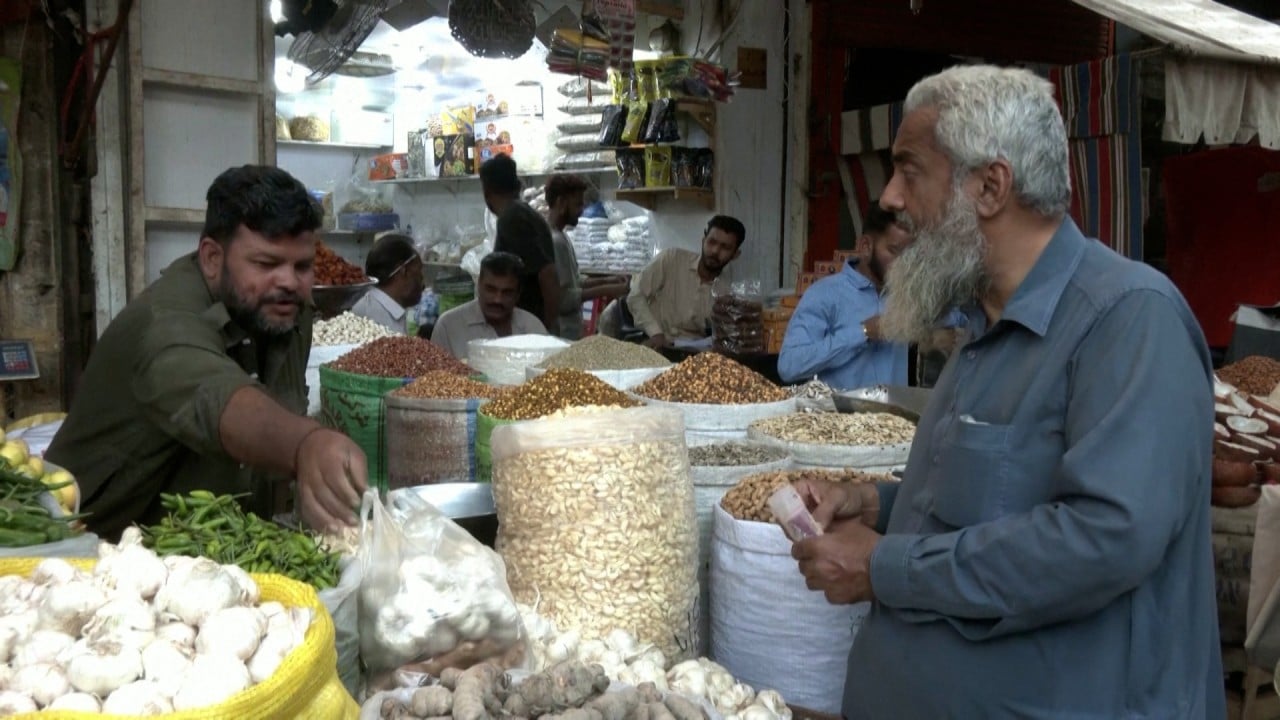In China-ally Pakistan’s Nawaz Sharif vs PTI battleground, uncertainty, apathy and strong-arm tactics collide
Sharif was sacked as prime minister in 2017 by Pakistan’s supreme court in equally controversial circumstances and banned for life from holding public office for “dishonest practices”.
Distrustful of the establishment’s intentions, the PML-N did not start to announce its official candidates until Wednesday night, two days after the supreme court had overturned Sharif’s lifetime ban.
Pakistan’s 3-time premier Nawaz Sharif back from exile, ahead of election
Pakistan’s 3-time premier Nawaz Sharif back from exile, ahead of election
The Supreme Court deprived the PTI of its election symbol, a cricket bat, late on Saturday in a ruling that endorsed the election commission’s prior decision. It is widely believed the loss of the party’s emblem could confuse millions of uneducated voters.
All the uncertainty has cast a pall over the election campaign, as could be seen through the lack of political activity in towns and villages along the Karakoram Highway (KKH), the sole overland connection between Pakistan and close ally China, when it was visited by This Week In Asia last week.
In stark contrast to previous campaigns, the towns of Haripur, Havelian, Abbottabad, Mansehra, Battagram, Shangla and Kohistan were largely devoid of political billboards and posters.
For the most part, between Sunday and Thursday candidates’ constituency-based offices were manned by a skeleton staff lounging around drinking very sweet green tea, the region’s favourite beverage.
The usual convoys of poster-clad vehicles bearing candidates’ images and activities, and blaring slogans over loudspeakers, were nowhere to be seen.
Vying for votes amid apathy
The KKH winds 1,300km uphill from Hasan Abdal near Islamabad, across forested foothills flanking the mighty Indus River and through valleys sandwiched between snow-capped mountain peaks in the Karakoram and Himalaya mountain ranges – the world’s highest – to Kashgar in China’s southwestern Xinjiang region.
When Sharif previously took power twice in the 1990s and subsequently in 2013, the PML-N won most of the eight National Assembly constituencies of northern Khyber Pakhtunkhwa province located along the lower half of the KKH.
To succeed in his bid to become prime minister for an unprecedented fourth time on February 8, historical trends indicate Sharif and the PML-N must once again win most of the region’s seats.
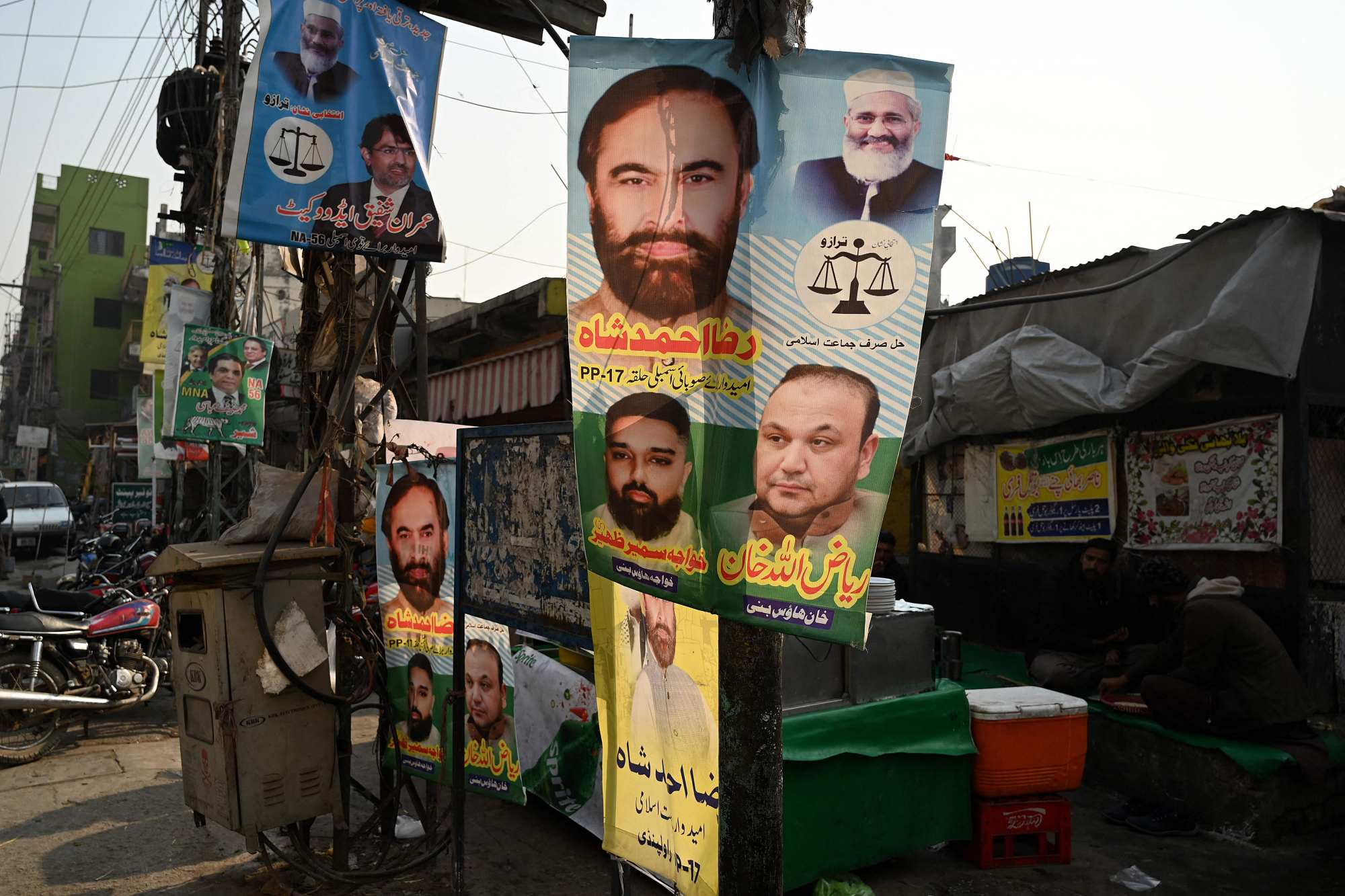
The PML-N’s supporters are predominantly based in populous eastern Punjab province, which is home to about half of National Assembly constituencies. Pakistan’s three other provinces are dominated by rival national and regional political parties.
But interviews with activists, people on the street and veteran journalists in Khyber-Pakhtunkhwa province suggest Sharif is likely to find it difficult to wrest control of the KKH constituencies from Khan’s PTI party.
For many people living there, the harsh economic realities of day-to-day life have sapped their enthusiasm for elections.
Nazaran, a 30-year-old kebab cook at a popular street food cafe near the main bus terminal in Abbottabad – by far the biggest urban centre on the KKH – said he and his family would not vote because they felt disenfranchised by endemic corruption and the runaway rate of inflation in recent years.
With Pakistan narrowly avoiding a Sri Lanka-like default and its foreign exchange reserves barely enough to pay for two months of imports, consumer price inflation hit record levels last year and continued to hover at 30 per cent in December, according to the ministry of finance.
“People say vote for this or that candidate or that party, but I don’t see the point,” Nazaran said.
“My family used to eat out often, but we can’t afford to any more because utility and grocery bills have become so extortionate. We are fed up with having to live so tightly.”
The loss of disposable income endured by Pakistanis in recent years had “at least halved” business at the kebab shop where he works on commission, he said.
“There’s no accountability, so why bother to vote?” Nazaran said.
From India to Indonesia, 2024 is Asia’s election year. But will anything change?
From India to Indonesia, 2024 is Asia’s election year. But will anything change?
His point was illustrated minutes later by a group of policemen who entered the open-fronted cafeteria, looking for trouble.
The crooked officers surrounded a scruffy looking migrant labourer having dinner, unsuccessfully searched him for drugs and would not relent until they had extorted 200 rupees (71 US cents) – the cost of a 250-gram beef chappal kebab, the region’s favourite street food.
Their departure sparked an animated conversation between customers and the cafeteria’s proprietors, who had watched the episode unfold in silence without attempting to intervene.
“That’s the problem with this country,” said a customer named Niaz, who proudly proclaimed his loyalty to Imran Khan.
“Corrupt officials prey on the poor with impunity, but they’re wary of confronting people of higher social status because they’re well connected.”
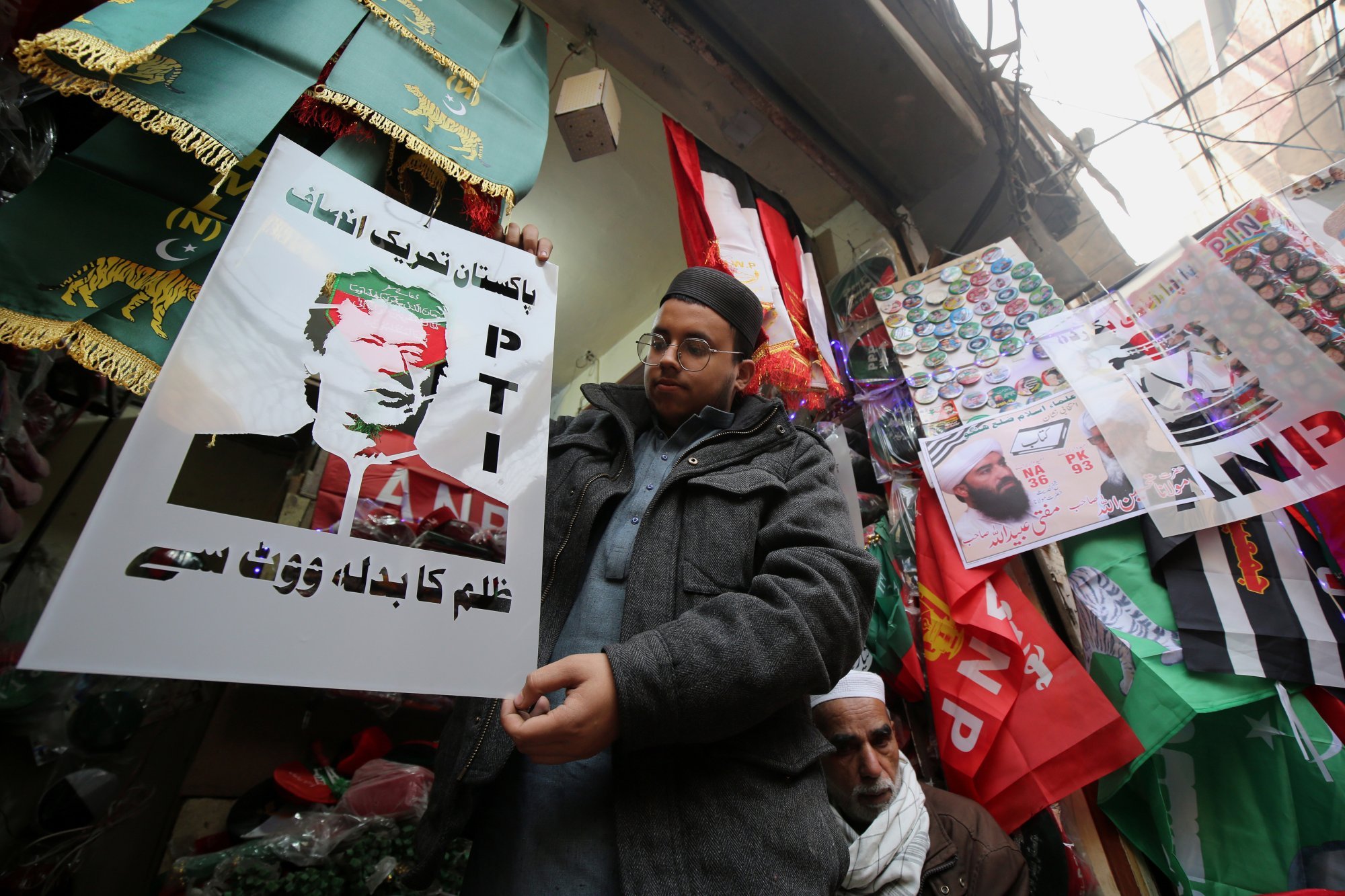
A PTI vs PML-N background
Sardar Naveed Alam, a former president of Abbottabad’s press club, said Sharif’s PML-N was struggling to find a viable candidate for one of the district’s two National Assembly and four of its provincial assembly seats.
The PML-N “is in an extremely bad state” in Abbottabad district, he said. “There used to be dozens of applicants for its election tickets, but nowadays there are only a couple.”
On the other hand, there is “a great deal of support” for the PTI, Alam said, adding that “if the state [military-led establishment] allows it” to freely contest the election, Khan’s party “will sweep” most of the constituencies in Abbottabad.
PML-N candidate Murtaza Javed Abbasi, a former deputy speaker of the National Assembly, is a likely exception as he held onto the Abbottabad-Havelian constituency in the 2018 election while all others around it fell to the PTI.
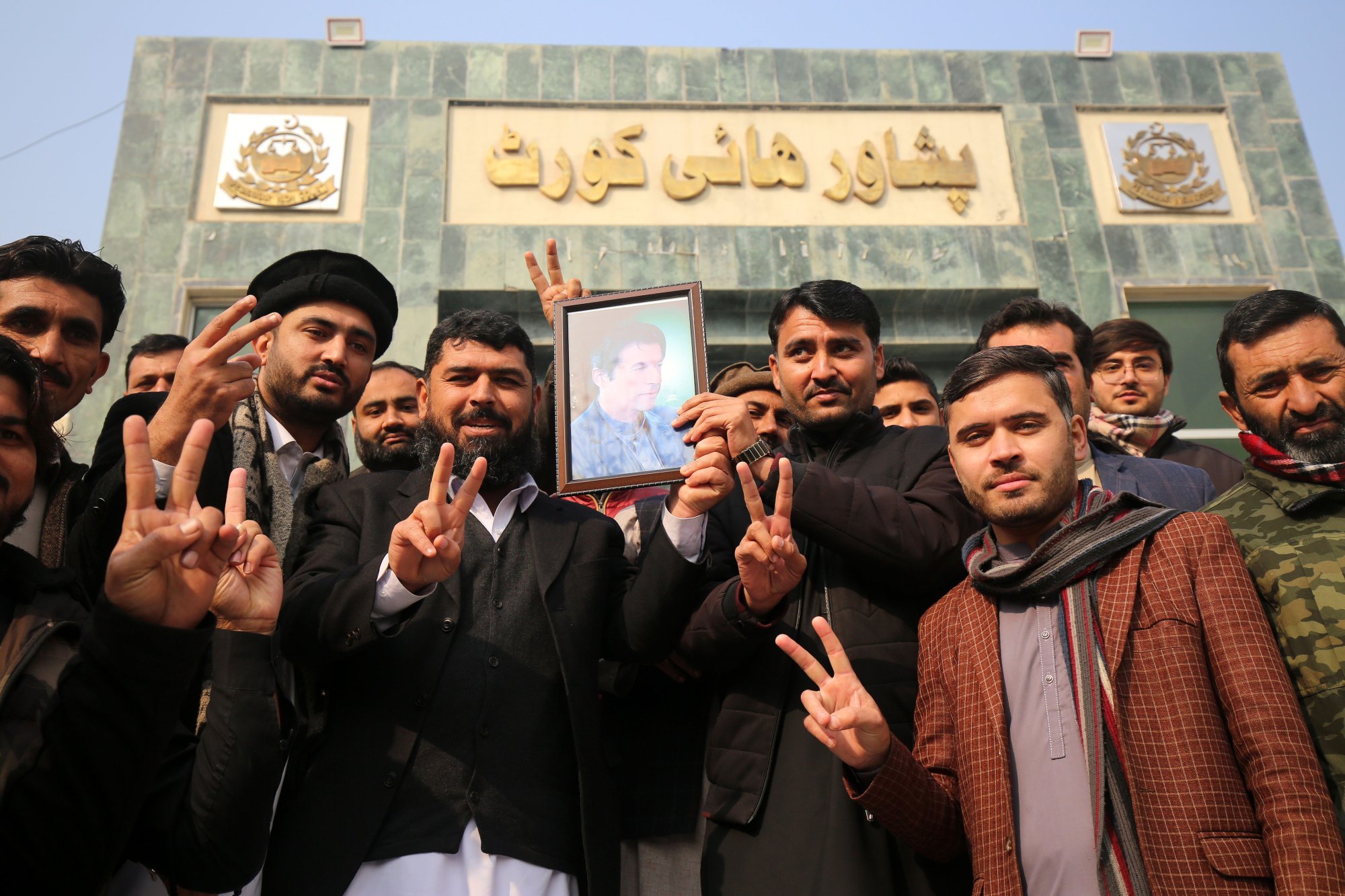
Gul Nawaz Khan, the PML-N candidate for the National Assembly in adjacent Haripur district at the foot of the KKH, also has “a good fighting chance” of winning against the PTI’s Omar Ayub, a former cabinet minister and the grandson of General Ayub Khan, who ruled Pakistan until 1969 after seizing power in a 1958 coup.
Several thousand PTI activists have since been arrested on terrorism-related charges for their roles in the riots, while more than 100 alleged ringleaders are being tried in military courts on charges of trying to stage a coup against the-then coalition government led by the PML-N, and of attempting to spark a mutiny within the armed forces.
Some prospective PTI candidates for KKH-based constituencies are on the run, trying to evade arrest, while others who attempted to launch election campaigns have had events disrupted by baton-wielding policemen because the authorities banned public assemblies on vague security grounds.
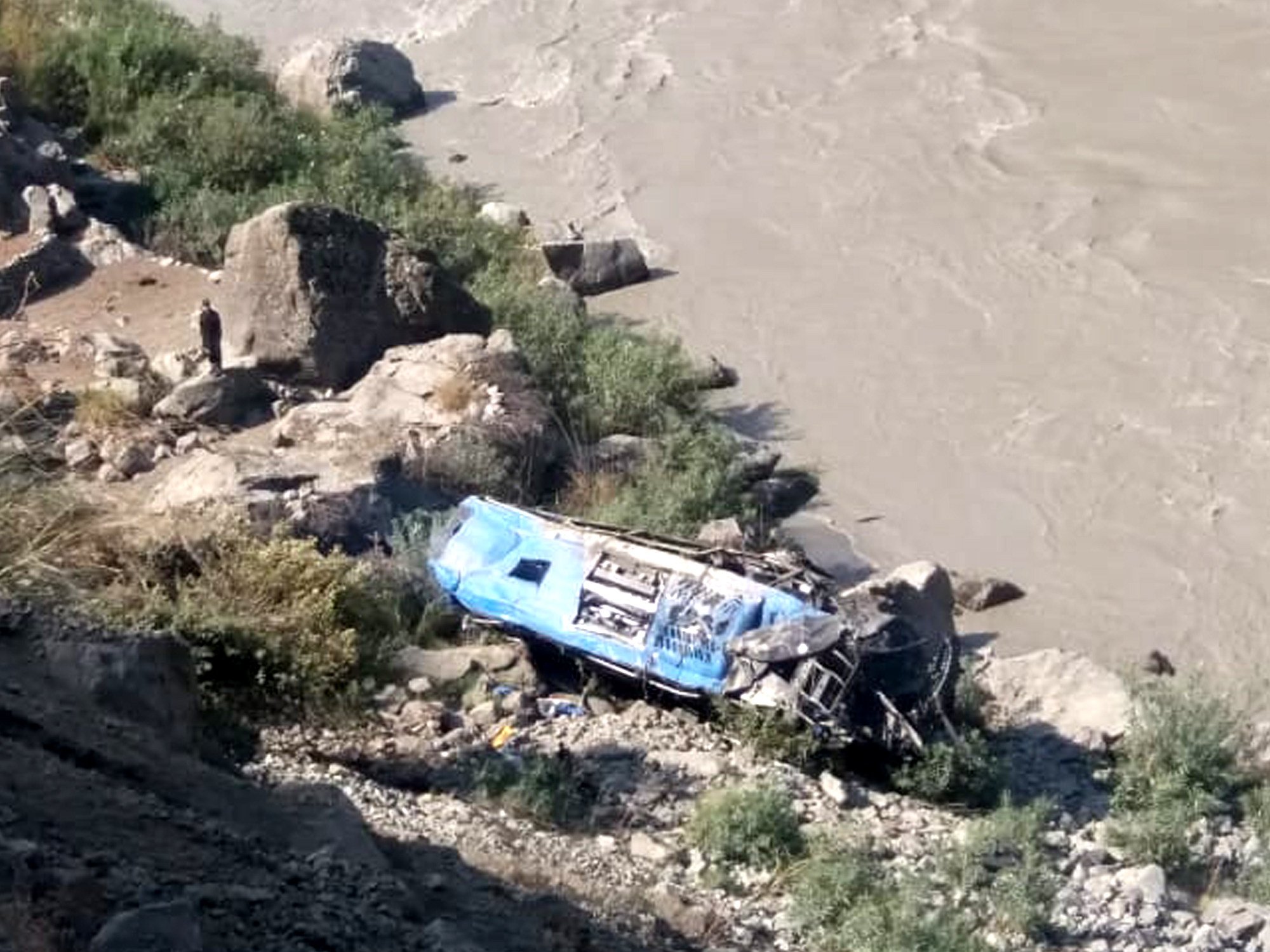
Unlike other areas of Khyber Pakhtunkhwa province close to the border with Afghanistan that have endured a resurgence of attacks by Pakistani Taliban insurgents, the areas along the KKH rarely suffer from such terrorism.
Since then, Pakistan’s army has deployed extra troops to protect Chinese nationals working on the Dassu project, as well as major hydropower plants at Bhasha in the Kohistan region and Balakot in Mansehra.
Militant groups fighting Indian security forces in Kashmir during the 1990s built several training camps around seminaries in the Mansehra area.
They were not closed down by the Pakistani authorities until the United States brokered a ceasefire deal with India in 2003 to bring a halt to more than a decade of heavy skirmishes along the disputed border in Kashmir, known as The Line of Control.
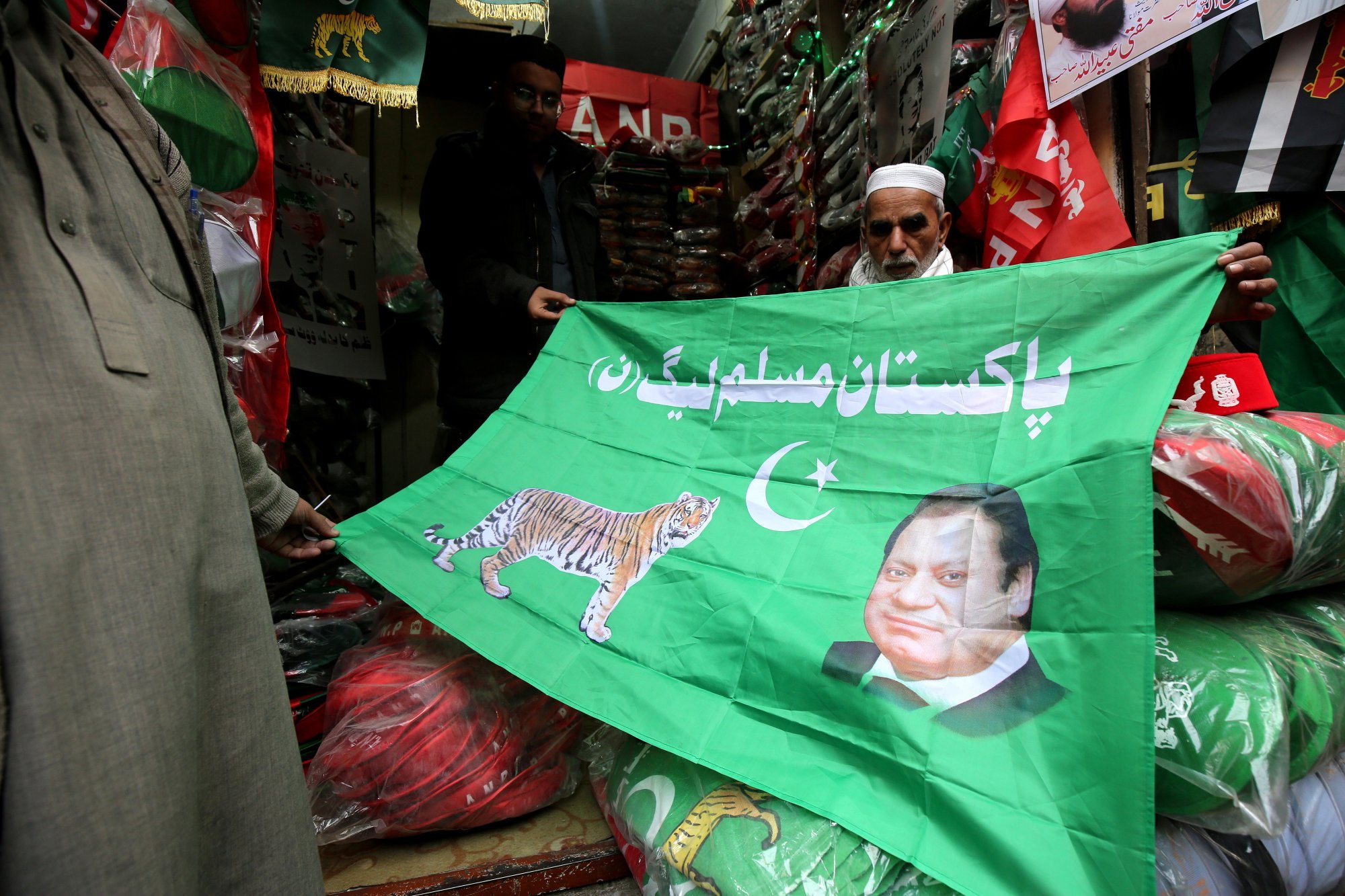
Aspiring prime minister Sharif was supposed to contest one of two National Assembly constituencies in Mansehra against former PTI cabinet minister Azam Swati, but the latter’s nomination papers have been rejected and the party is considering alternative candidates.
In theory, this should boost Sharif’s prospects of winning, which were already good because of his popularity as a former national leader.
Swati won Mansehra in Pakistan’s controversial 2018 election, which was marred by interference by the military establishment and judiciary.
The constituency was previously represented by Sharif’s son-in-law Muhammad Safdar Awan during the PML-N administration between 2013 and 2018.
Awan oversaw the transformational development of the constituency’s infrastructure, building roads that connected the remote tribal Tanawal area of Mansehra district to the KKH and the national power grid for the first time, and establishing government schools and basic healthcare clinics.
In doing so, he “ended the domination” of feudal tribal leaders called the Khans and Maliks, and established a loyal PML-N voter base, said the party’s long-serving Mansehra district president Zafar Mahmood, who is contesting its provincial assembly constituency – albeit without the party’s approval.
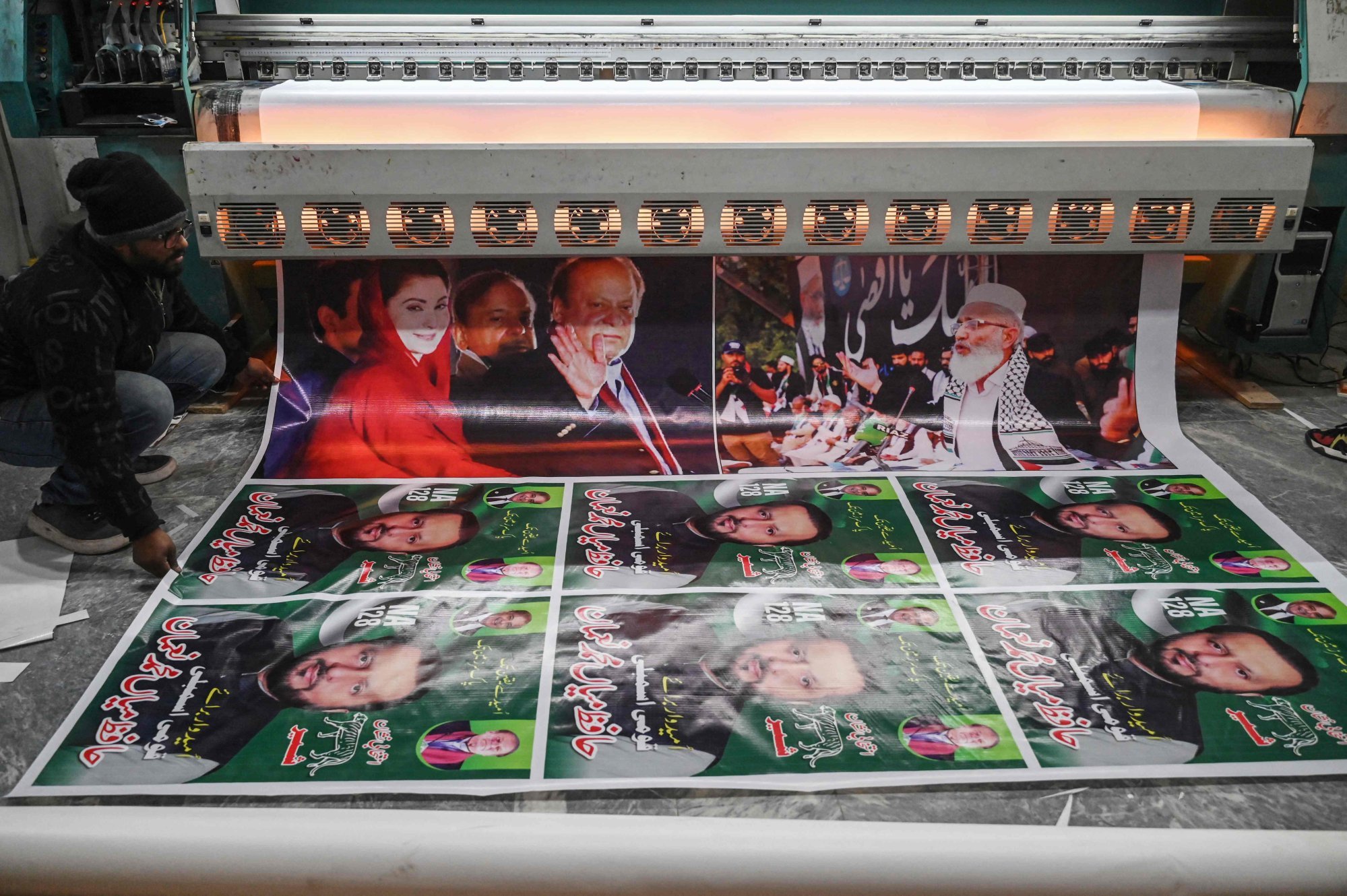
While still a devoted Sharif loyalist, Mahmood and other veteran PML-N politicians from Mansehra – including former Khyber-Pakhtunkhwa chief minister Sardar Mehtab Abbasi and five-time member of the National Assembly Sardar Muhammad Yousuf – have been greatly angered by upstart Awan’s takeover of the party apparatus and his imposition of favourites as provincial assembly candidates.
In turn, this reflects opposition by other top-tier PML-N politicians to Sharif’s undemocratic anointment of daughter Maryam Nawaz – Awan’s wife – as his designated successor and leader of the party’s national election campaign.
“All we want from Mian Sahib [Sharif] and the party leadership is that they award tickets to candidates on merit,” said Mahmood in an interview in Tanawal on Tuesday, as his support team cajoled reluctant shopkeepers to allow them to stick campaign posters on their premises.
“If they don’t, it will undermine his own chances of winning and damage the party,” he said.
Strong-arm tactics, calls for ‘freedom’
The PML-N is considered to have only a slim chance of winning in Battagram, a district that lies between Mansehra and Shangla and is renowned for the influence of religious activists.
Meanwhile, leading candidates contesting the Kohistan region – where Chinese workers were killed in July 2021 – are either feudal maliks (chiefs) or chosen by lots drawn by the area’s two tribal councils, and contest as independents who later support whichever party wins the national and provincial elections.
This augurs ill for the PML-N, whose regional strongman Amir Muqam is locked in a desperate battle with the PTI for Shangla, led by journalists’ union leader-turned-politician Shaukat Ali Yousafzai, and other parties’ candidates who have formed local tactical alliances to thwart him.
Yousafzai’s nomination papers from two of Shangla’s provincial constituencies were only accepted upon appeal, while his prior efforts to campaign there were undermined by “difficulties created for us” by the district administration, said his brother Liaquat Yousafzai, the PTI’s district president.
Pakistan’s bid for stability by banning Imran Khan ‘illusionary at best’
Pakistan’s bid for stability by banning Imran Khan ‘illusionary at best’
“We were both banned from entering the constituency for seven to eight months, various criminal cases were lodged against us by the police, our businesses were shut down, and our vehicles were confiscated from our home and still haven’t been returned,” he said.
Their relatives in the civil service have been transferred to remote places “that are difficult even for the police to reach”, he claimed, while the two brothers – like other PTI stalwarts – have allegedly been under intense pressure from the intelligence services to desert the party “or face dreadful consequences”.
Rather than put off voters, however, such strong-arm tactics – a long-standing staple of Pakistani politics – have stoked public anger against the establishment and political dynasties that Imran Khan and his PTI have sought to capitalise upon with populist calls for “freedom”, although his party’s democratic credentials are no better than those of his opponents.
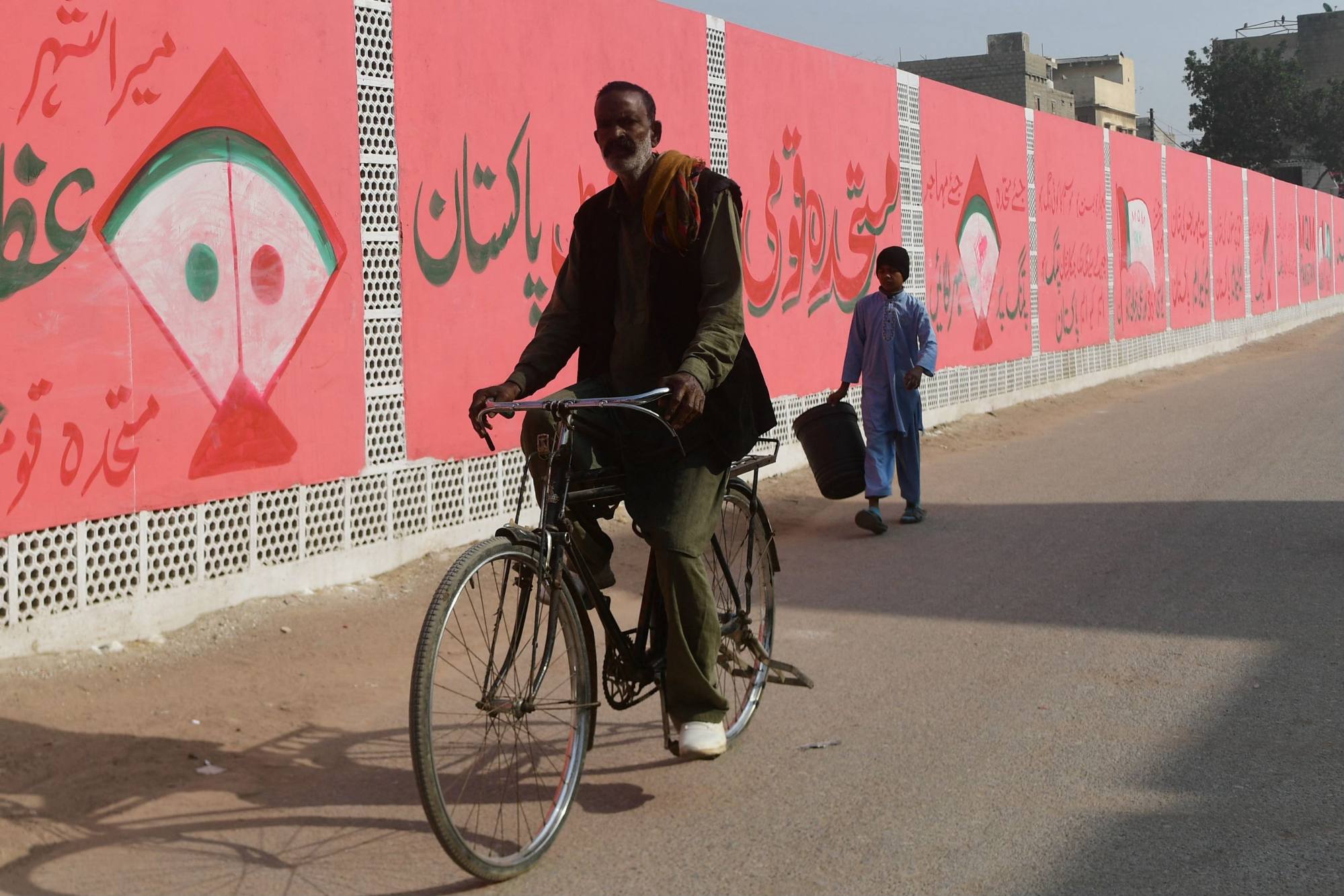
As with Awan in Mansehra, veteran PML-N politicians and their voters have been annoyed by Muqam’s decision to hand-pick provincial assembly candidates over Shangla district’s long-standing political activists, in an attempt to establish an intergenerational dynasty.
This had led a tribal council in one of the three provincial constituencies to declare a boycott of the PML-N, activists and journalists in the KKH town of Besham said.
Customers at the popular Kohistan Foods restaurant in the town doubted Muqam and the PML-N’s chances as they shared a steaming pot of tea with This Week In Asia on Wednesday evening.
Two of three friends in their early 30s – all university-educated – said they were convinced Muqam would lose. The third, however, an advertising business owner named Umar, differed.
“It will be extremely difficult” for Muqam, he said, but the politician and his “friends” in the establishment would pull out all the stops.
“Otherwise, it would be disastrous for Sharif and them both,” he said.


